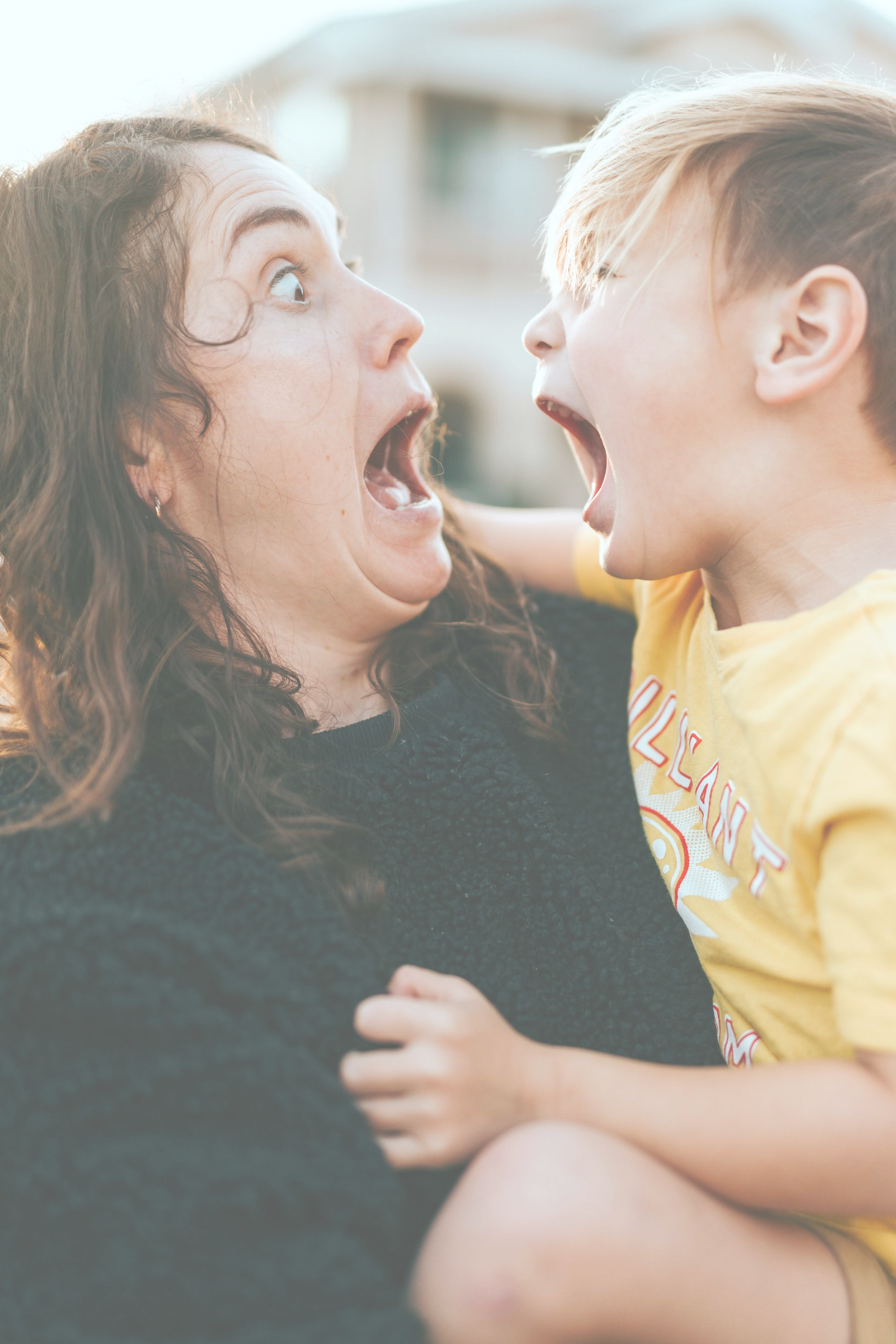When Parents Break Down: How can I co-regulate my kids when I'm not regulated?
Sometimes the pressure of parenting stacks up. We're here to tell you: you're not alone.

Let’s be honest — parenting is an emotional rollercoaster. Some days, it feels like you’re crushing it: the house is semi-clean, your kids actually ate something green, and bedtime happened before midnight. Other days, it feels like the smallest thing — a spilled cup of milk, a tantrum over the wrong color of bowl — can send you over the edge.
And if you’ve ever had that moment of closing the bathroom door just to breathe, or scrolling your phone at the end of the day while watching other parents vent about the chaos — you’re not alone. Sometimes, that is our version of self-regulation.
But here’s the thing: we talk so much about how parents co-regulate with their children, helping little ones calm their nervous systems by being calm ourselves. What we rarely talk about is how hard that is to do when we are dysregulated — tired, anxious, overstimulated, or running on fumes.
That’s where the work of parenting overlaps with the work of therapy. Because underneath all the bedtime routines and packed lunches, parenting is actually a long-term exercise in emotional regulation — for both you and your kids.
In therapy, when parents come in feeling like they’re constantly losing patience or feeling numb, the goal isn’t to shame them. It’s to help them slow down and notice what’s happening inside their body before they reach the breaking point. Sometimes that means working on grounding skills — taking a pause to notice the five things you can see, or using your breath as an anchor when you feel like you’re about to snap.
Other times, it’s about rewriting the story you tell yourself. Instead of, “I’m a bad parent because I yelled,” it becomes, “I was overwhelmed, and I can repair that moment.” That shift — from self-criticism to self-compassion — is the foundation of emotional resilience.
Therapists often teach tools like progressive muscle relaxation, box breathing, or safe-place visualization — not just to use when you’re in crisis, but to practice on good days so they become familiar. Just like your child learns to calm themselves through repeated co-regulation with you, you can learn to self-regulate through intentional practice and grace toward yourself.
Because the truth is, every parent will lose their cool sometimes. Every parent will feel guilt. But good parenting isn’t about being perfect — it’s about staying connected. About repairing when things go wrong. About modeling for your kids what it looks like to be human and still keep showing up with love.
So if you’re reading this at the end of a long day, maybe after the house finally quiets down, take a breath. You’re doing the hardest, most heart-expanding job there is. And the fact that you care enough to wonder whether you’re doing it right? That already makes you the kind of parent your kids need.
_____________________________________
If you're struggling to deal with your own stuff in the middle of kids and a chaotic home, you're not alone. We're here to help. Our team of Registered Psychotherapists can give you space to vent, explore your emotions, think about goals, and support you moving forward. To book, please use https://resetbarrie.janeapp.com
This post is a companion to our podcast, Beyond the Session, which you can find on Spotify or YouTube. This episode features Andi Atkins, Registered Psychotherapist and Kathleen Tsang, Registered Social Worker at Reset Counselling & Psychotherapy in Barrie.

